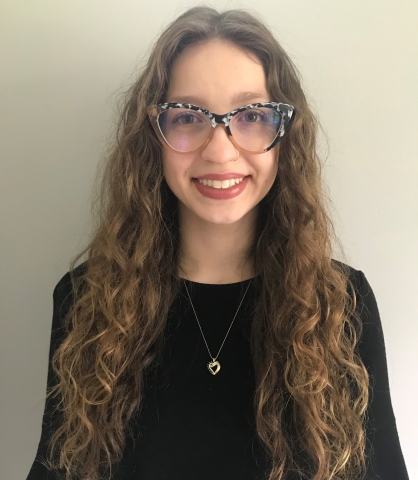According to the CDC, diabetic retinopathy is the “leading cause of blindness within working-age adults.” The solution and the focus of this disease is the topic of ARCS Scholar Sarah Vavrek’s research: preclinical biomarker development for diabetic retinopathy.
“It’s already been established that up to 90% of vision loss can be mitigated if it is caught and treated within a reasonable timeframe, meaning before they actually have retinopathy,” Vavrek said, referring to this CDC webpage.
Right now, a doctor cannot look into their patient’s eyes and establish if they will have diabetic-related vision problems in the future. But with Vavrek’s and her team’s software, doctors will be able to determine their biomarkers when retinopathy is occurring while it is in the preclinical stages.
Vavrek herself has struggled with chronic health conditions as well, which drives her to find better medical solutions using her engineering background.
“The whole reason I have a career is because of medical advancements. The ideas of what I could do was quite minimal. But the medical advancements opened opportunities and made me feel like if I can enhance medicine why wouldn’t I?” she said.
She began her studies at Purdue University Northwest in mechanical engineering with a concentration in mechatronics at Purdue University Northwest, and then to pursue a PhD in Biomedical Engineering at the Illinois Institute of Technology.
Stopping Diabetic Retinopathy
Vavrek’s PhD research targets retinopathy prevention in people with diabetes. Diabetic retinopathy occurs in people with diabetes because of their increased blood sugar levels.
“Over a prolonged period, the increase in blood sugar levels causes the blood vessels within their eyes, specifically their retina, to break down, causing the blood to leak. This leads to vision loss and even blindness,” she said.
Unfortunately, once blindness is noticed, the blood is already leaking out of their blood vessels and into other parts of the eye. At that point, the treatment is not the same. You can’t fully undo that blindness,” Vavrek continued.
The overall goal for Vavrek and her team is to reduce the amount of vision loss experienced by patients because of their diabetes. The long-term goal, beyond the development of these biomarkers, is to turn this into software packets that could be shared with clinics so doctors can use this program on their patients to determine if they are likely to develop or are in the process of developing diabetic retinopathy.
Receiving an ARCS Scholar Award was the financial support Vavrek needed to reinforce her decision to stay in academia. She explained that the decision to remain in academia, instead of getting a job after receiving her bachelor’s, was a huge decision, for her career and her finances. It is why she is so appreciative of ARCS support.
“If you’re someone in this realm, you only have a small bubble of people you can speak to or get support from. If you want to be in the scientific realm, you have to seek it yourself. ARCS is its own creation of professionals going out of their way to say, ‘You need to show support and help elevate our next level of scientists and engineers.”
She concluded, “It’s very clear that this foundation is looking to promote the education of the next generation of American engineers and scientists”.

